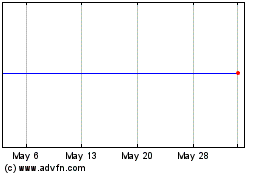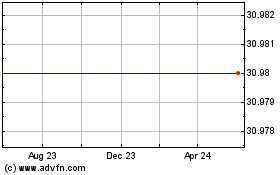Amylin Pharmaceuticals, Inc. (Nasdaq: AMLN), Eli Lilly and
Company (NYSE: LLY) and Alkermes, Inc. (Nasdaq: ALKS) today
announced positive results from a head-to-head study comparing
exenatide once weekly, an investigational diabetes therapy, to
BYETTA® (exenatide) injection taken twice daily, in patients with
type 2 diabetes. After 24 weeks of treatment, patients taking
exenatide once weekly experienced a statistically superior
reduction in A1C, a measure of average blood sugar over three
months, of 1.6 percentage points from baseline, compared to a
reduction of 0.9 percentage points for BYETTA. Patients treated
with exenatide once weekly achieved a mean A1C of 7.1 percent
compared with a mean A1C of 7.7 percent in those treated with
BYETTA. Both treatment groups achieved statistically significant
weight loss by the end of the study, with an average loss of 5.1
pounds for patients taking exenatide once weekly and 3.0 pounds for
patients taking BYETTA.
These findings are consistent with the results of other studies
of exenatide once weekly and BYETTA. The companies conducted
DURATION-5 to support regulatory submissions outside of the U.S.
and provide additional controlled clinical data on the commercially
manufactured product. DURATION is a series of clinical trials
designed to test the superiority of exenatide once weekly as
compared to currently available type 2 diabetes medications.
“The DURATION-5 data reinforce the efficacy of BYETTA and
potential of exenatide once weekly in improving blood glucose
control as measured by A1C, and build upon other successful
DURATION trials,” said Orville G. Kolterman, M.D., senior vice
president of research and development, Amylin Pharmaceuticals.
“More importantly, these results continue to suggest that if
approved, exenatide once weekly could play an important role in
advancing the treatment of type 2 diabetes by providing patients
the opportunity for improved A1C control and weight loss with just
one dose per week.”
Approximately 80 percent of patients completed the study.
Consistent with previous DURATION trials, the most frequently
reported adverse event in both groups was nausea, reported less
frequently by exenatide once weekly users (14 percent) than by
BYETTA users (35 percent). There were no major hypoglycemic events.
Cases of minor hypoglycemia in both groups were limited to patients
using background sulfonylurea therapy.
The 24-week, open-label superiority study included approximately
250 participants with type 2 diabetes who were not achieving
adequate glucose control using background therapies that included
diet and exercise, metformin, sulfonylurea, thiazolidinediones or a
combination of the agents. Patients were randomized to receive
either exenatide once weekly or BYETTA. Patients in the exenatide
once weekly treatment arm received 2 milligrams once a week, while
patients in the BYETTA arm received 5 micrograms twice a day for
the first four weeks and 10 micrograms twice a day for the
remaining 20 weeks. The primary endpoint was reduction in A1C;
secondary endpoints included change in body weight and fasting
plasma glucose, safety and tolerability.
Amylin, Lilly and Alkermes submitted a new drug application
(NDA) for exenatide once weekly to the U.S. Food and Drug
Administration (FDA) in May 2009; the NDA was accepted for review
in July 2009. Lilly will be responsible for marketing exenatide
once weekly outside the U.S. and expects to submit a marketing
application to the European Medicines Agency by the end of the
second quarter in 2010.
About Diabetes
Diabetes affects more than 24 million people in the U.S., and it
is estimated that by 2010, it will affect 284.6 million adults
worldwide.1,2 Approximately 90-95 percent of those affected have
type 2 diabetes. Diabetes is the fifth leading cause of death by
disease in the U.S. and costs approximately $174 billion per year
in direct and indirect medical expenses.3
According to the Centers for Disease Control and Prevention’s
National Health and Nutrition Examination Survey, approximately 60
percent of people with diabetes do not achieve their target blood
sugar levels with their current treatment regimen.4 In addition, 85
percent of type 2 diabetes patients are overweight and 55 percent
are considered obese.5 Data indicate that weight loss (even a
modest amount) supports patients in their efforts to achieve and
sustain glycemic control.6,7
About BYETTA® (exenatide) injection
BYETTA is the first and only FDA-approved GLP-1 receptor agonist
for the treatment of type 2 diabetes. BYETTA exhibits many of the
same effects as the human incretin hormone glucagon-like peptide-1
(GLP-1). GLP-1 improves blood sugar after food intake through
multiple effects that work in concert on the stomach, liver,
pancreas and brain.
BYETTA is an injectable prescription medicine that may improve
blood sugar (glucose) control in adults with type 2 diabetes
mellitus, when used with a diet and exercise program. BYETTA is not
insulin and should not be taken instead of insulin. BYETTA is not
recommended to be taken with insulin. BYETTA is not for people with
type 1 diabetes or people with diabetic ketoacidosis.
BYETTA provides sustained A1C control and low incidence of
hypoglycemia when used alone or in combination with metformin or a
thiazolidinedione, with potential weight loss. BYETTA is not a
weight loss product. BYETTA was approved in April 2005 and has been
used by more than one million patients since its introduction. For
full prescribing information, visit www.BYETTA.com.
Important Safety Information for BYETTA®
(exenatide) injection
Based on post-marketing data, BYETTA has been associated with
acute pancreatitis, including fatal and non-fatal hemorrhagic or
necrotizing pancreatitis. The risk for getting low blood sugar is
higher if BYETTA is taken with another medicine that can cause low
blood sugar, such as a sulfonylurea. BYETTA should not be used in
people who have severe kidney problems, and should be used with
caution in people who have had a kidney transplant. Patients should
talk with their healthcare provider if they have severe problems
with their stomach, such as delayed emptying of the stomach
(gastroparesis) or problems with digesting food. Severe allergic
reactions can happen with BYETTA.
The most common side effects with BYETTA include nausea,
vomiting, diarrhea, dizziness, headache, feeling jittery, and acid
stomach. Nausea most commonly happens when first starting BYETTA,
but may become less over time.
These are not all the side effects from use of BYETTA. A
healthcare provider should be consulted about any side effect that
is bothersome or does not go away.
For Prescribing Information and Medication Guide, visit
www.BYETTA.com.
About Amylin, Lilly and Alkermes
Amylin, Lilly and Alkermes are working together to develop
exenatide once weekly, a subcutaneous injection of exenatide for
the treatment of type 2 diabetes based on Alkermes’ proprietary
Medisorb® technology for long-acting medications. Exenatide once
weekly is not currently approved by any regulatory agencies.
Amylin Pharmaceuticals is a biopharmaceutical company dedicated
to improving lives of patients through the discovery, development
and commercialization of innovative medicines. Amylin's research
and development activities leverage the Company's expertise in
metabolism to develop potential therapies to treat diabetes and
obesity. Amylin is headquartered in San Diego, California.
Through a long-standing commitment to diabetes care, Lilly
provides patients with breakthrough treatments that enable them to
live longer, healthier and fuller lives. Since 1923, Lilly has been
the industry leader in pioneering therapies to help healthcare
professionals improve the lives of people with diabetes, and
research continues on innovative medicines to address the unmet
needs of patients.
Lilly, a leading innovation-driven corporation, is developing a
growing portfolio of pharmaceutical products by applying the latest
research from its own worldwide laboratories and from
collaborations with eminent scientific organizations. Headquartered
in Indianapolis, Indiana, Lilly provides answers – through
medicines and information – for some of the world's most urgent
medical needs.
Alkermes, Inc. is a fully integrated biotechnology company
committed to developing innovative medicines to improve patients'
lives. Alkermes' robust pipeline includes extended-release
injectable, pulmonary and oral products for the treatment of
prevalent, chronic diseases, such as central nervous system
disorders, addiction and diabetes. Headquartered in Cambridge,
Massachusetts, Alkermes has research facilities in Massachusetts
and a commercial manufacturing facility in Ohio.
This press release contains forward-looking statements about
Amylin, Lilly and Alkermes and the investigational drug, exenatide
once weekly. Actual results could differ materially from those
discussed or implied in this press release due to a number of risks
and uncertainties, including the risk that exenatide once weekly
may be affected by unexpected new data; safety and technical
issues; clinical trials not confirming previous results, or not
achieving the intended clinical endpoints; the DURATION-5
superiority study results potentially not being predictive of real
world use; clinical trials not predicting future results; label
expansion requests or New Drug Application (NDA) filings not being
submitted in a timely manner; regulatory approval, including
approval for exenatide once weekly, being delayed or not received;
or manufacturing and supply issues. The potential of exenatide once
weekly may also be affected by government and commercial
reimbursement and pricing decisions, the pace of market acceptance,
or scientific, regulatory and other issues and risks inherent in
the development and commercialization of pharmaceutical products
including those inherent in the collaboration with and dependence
upon Amylin, Lilly and/or Alkermes. These and additional risks and
uncertainties are described more fully in Amylin’s, Lilly's and
Alkermes’ most recent SEC filings including their Quarterly Reports
on Form 10-Q and Annual Reports on Form 10-K. Amylin, Lilly and
Alkermes undertake no duty to update these forward-looking
statements.
BYETTA® is a registered trademark of Amylin Pharmaceuticals,
Inc. and Medisorb® is a registered trademark of Alkermes, Inc.
1 The International Diabetes Federation Diabetes Atlas.
Available at:
http://www.diabetesatlas.org/content/regional-overview. Accessed on
Dec. 14, 2009.
2 Diabetes Statistics. American Diabetes Association. Available
at http://www.diabetes.org/diabetes-basics/diabetes-statistics/.
Accessed Dec. 14, 2009.
3 Direct and Indirect Costs of Diabetes in the United States.
American Diabetes Association. Available at: http://www.diabetes.org/how-to-help/action/resources/cost-of-diabetes.html.
Accessed Dec. 14, 2009.
4 Saydah SH, Fradkin J and Cowie CC. Poor control of risk
factors for vascular disease among adults with previously diagnosed
diabetes. JAMA. 2004;291:335-42.
5 Bays HE, Chapman RH, Grandy S. The relationship of body mass
index to diabetes mellitus, hypertension and dyslipidaemia:
comparison of data from two national surveys. Int J Clin Pract.
2007;61:737-47.
6 Nutrition Recommendations and Interventions for Diabetes: a
position statement of the American Diabetes Association. Diabetes
Care. 2007;30 Suppl 1:S48-65. vii Anderson JW, Kendall CW, Jenkins
DJ. Importance of weight management in type 2 diabetes: review with
meta-analysis of clinical studies. J Am Coll Nutr.
2003;22:331-9.
Amylin Pharmaceuticals, Inc. (MM) (NASDAQ:AMLN)
Historical Stock Chart
From Dec 2024 to Jan 2025

Amylin Pharmaceuticals, Inc. (MM) (NASDAQ:AMLN)
Historical Stock Chart
From Jan 2024 to Jan 2025
